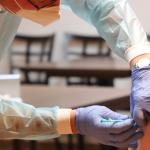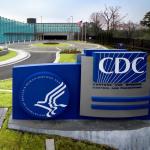Over the course of the pandemic, our understanding of SARS-COV-2 has changed almost weekly as new evidence has continued to roll in.
pandemic
I'm sure seeing a lot of vaccine disquietude going around in the past few months.
Americans aren't all that eager to get COVID shots—at least that's the impression reporters gave us for months.
72 percent of Americans believe that federal public health institutions play a pivotal role in the nation's health care system, though fewer than 40 percent of people trust these agencies to fulfill that obligation.
As of now, the official number of COVID cases in the United States stands at roughly 27.1 million.
Throughout the COVID pandemic, many Americans complained that our culture made it far easier for the coronavirus to spread.
During the U.S. border crisis, in which immigrants from Central and South America were attempting to cross the border illegally into the United States, thousands of families and children were separated during the detention process.
I live in the Seattle area, but I spend a lot of time in Boise because of family. This has allowed me the unique opportunity to experience two completely different state government responses to the coronavirus pandemic.
In 2019, the American Council on Science and Health’s Board of Trustees proposed that we identify a core group of especially committed supporters. We were looking for a small group of visionary donors.
Everything mutates. Random changes to the DNA (or, in the case of some viruses like coronavirus, the RNA) occur, and this can create new traits. Some of these traits are advantageous, and natural selection favors them. This is called evolution.












